Are you eager to dive into the world of Python? Look no further! We’ve compiled the top 15 Free Python eBooks covering a wide range of topics, from beginner lessons to advanced concepts in machine learning and data science. Whether you’re new to programming or a seasoned coder, these eBooks offer valuable insights and practical advice to enhance your Python skills. Let’s embark on this exciting journey into the world of Python together!
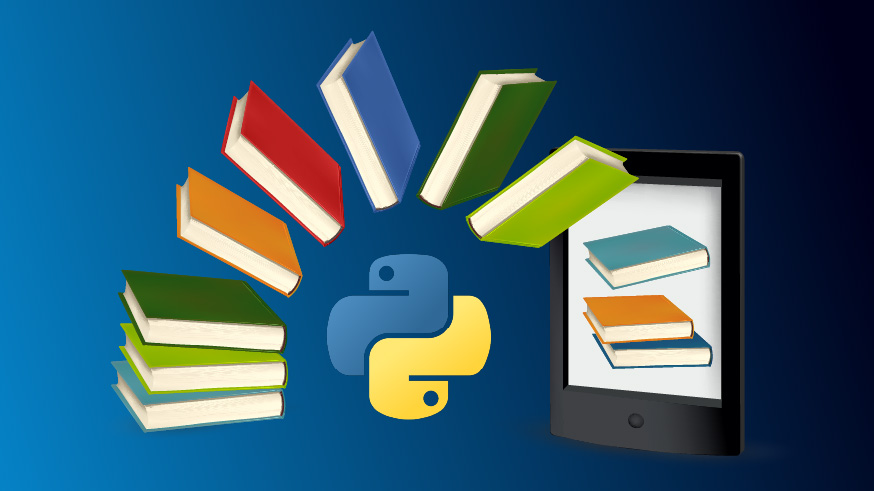
Key Factors
The following criteria were used to narrow down the top 15 free Python eBooks:
- Relevance: Covering a wide range of topics from beginner to intermediate levels, each eBook provides insightful analysis and useful information on Python programming.
- Quality: Because of their concise explanations, useful examples, and well-organized content, these eBooks are well regarded in the Python community.
- Availability: There are no financial obstacles to studying Python because all of these eBooks are freely available online.
- Diversity: Diverse interests and ability levels are catered to by the eBook selection, which covers a range of topics related to Python programming, including web development, data science, machine learning, and more.
All things considered, these elements were thought to give readers and learners of Python an extensive and varied selection of free eBooks.
15 Best Free Python eBooks
Here are top 15 best free Python eBooks:
- “A Byte of Python” by Swaroop C H
- “Dive Into Python 3” by Mark Pilgrim
- “Python Programming for the Absolute Beginner” by Michael Dawson
- “Automate the Boring Stuff with Python” by Al Sweigart
- “Python Cookbook” by David Beazley and Brian K. Jones
- “Think Python” by Allen Downey
- “Effective Python: 59 Specific Ways to Write Better Python” by Brett Slatkin
- “Python for Everybody” by Charles Severance
- “Python Crash Course” by Eric Matthes
- “Python Data Science Handbook” by Jake VanderPlas
- “Fluent Python: Clear, Concise, and Effective Programming” by Luciano Ramalho
- “Natural Language Processing in Python” by Jacob Perkins
- “The Hitchhiker’s Guide to Python” by Kenneth Reitz and Tanya Schlusser
- “Python Practice Book” by Anand Chitipothu
- “Machine Learning Yearning” by Andrew Ng
Lets us dive into the description of each book.
1. “A Byte of Python” by Swaroop C H
“A Byte of Python” is a book that is suitable for beginners and provides a good foundation in Python programming. It goes over several fundamental ideas, including functions, control structures, and data kinds. The book is a wonderful resource for Python beginners because it is well-structured and provides clear explanations and practical examples.
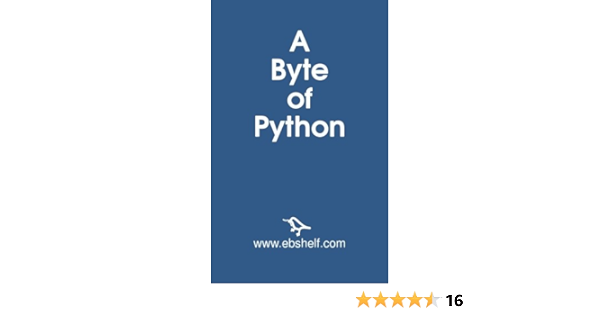
Where to find: Available for free on the author’s website: A Byte of Python
2. “Dive Into Python 3” by Mark Pilgrim
A thorough introduction to Python 3 programming may be found in “Dive Into Python 3.” Numerous subjects are covered, including as modules, functions, data types, and more complex ideas. The practical approach and real-world examples in the book are well-known.
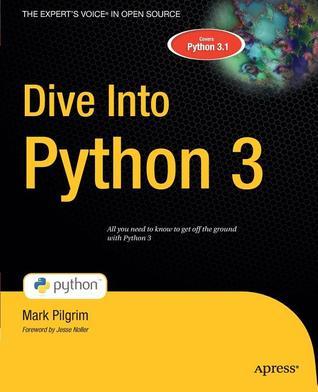
here to find: Available for free on Dive Into Python 3
3. “Python Programming for the Absolute Beginner” by Michael Dawson
Python programming newcomers are the target audience for this book. It focuses on real-world examples and exercises while providing a clear and simple explanation of Python fundamentals. With practical tasks, readers will gain knowledge about functions, loops, variables, and more.
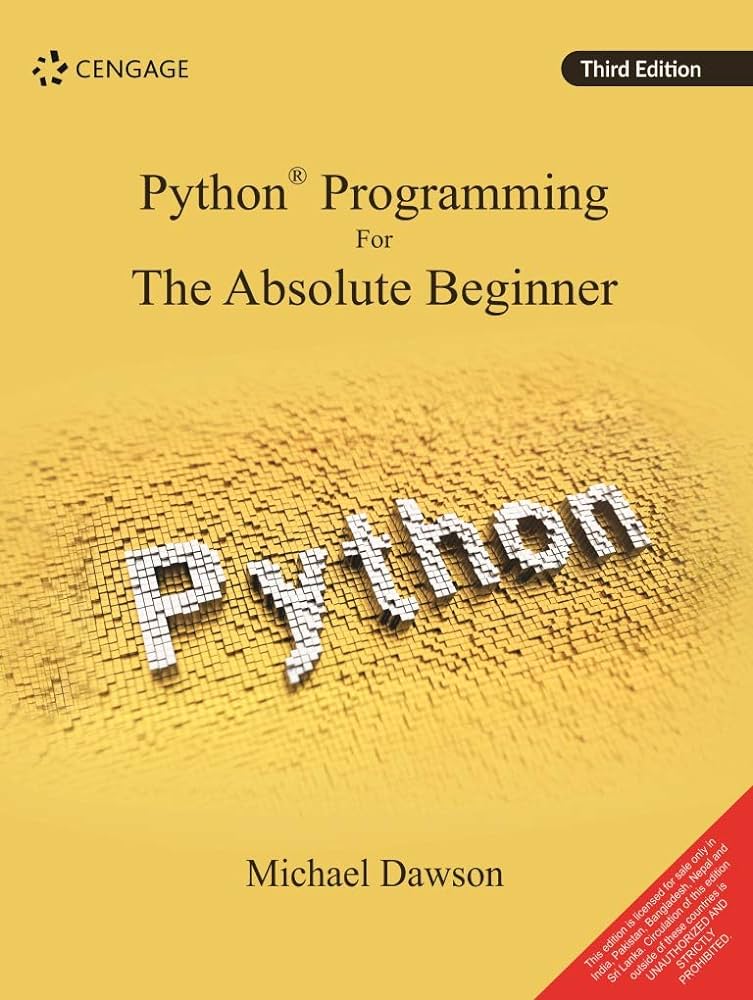
Where to find: Available for free on FreeTechBooks
4. “Automate the Boring Stuff with Python” by Al Sweigart
Practical Python programming for automating daily tasks is the main topic of this book. The book covers subjects such as working with files, web scraping, spreadsheet manipulation, and other related topics. Each chapter of the project-based book introduces a new idea through practical tasks.
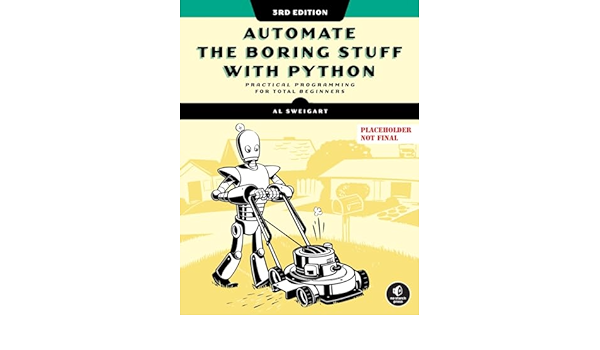
Where to find: Available for free on the author’s website
5. “Python Cookbook” by David Beazley and Brian K. Jones
A collection of recipes for typical Python programming activities may be found in the “Python Cookbook”. Numerous subjects are covered, such as file handling, algorithms, and data structures. Every recipe offers a workable fix for a particular programming issue.

Where to find: Available for free on PythonBooks
6. “Think Python” by Allen Downey
For those who are new to or intermediate in Python programming, “Think Python” is an extensive resource. Data structures, recursion, and object-oriented programming are just a few of the fundamental to advanced subjects it covers. The book emphasizes the ideas of programming and problem-solving.
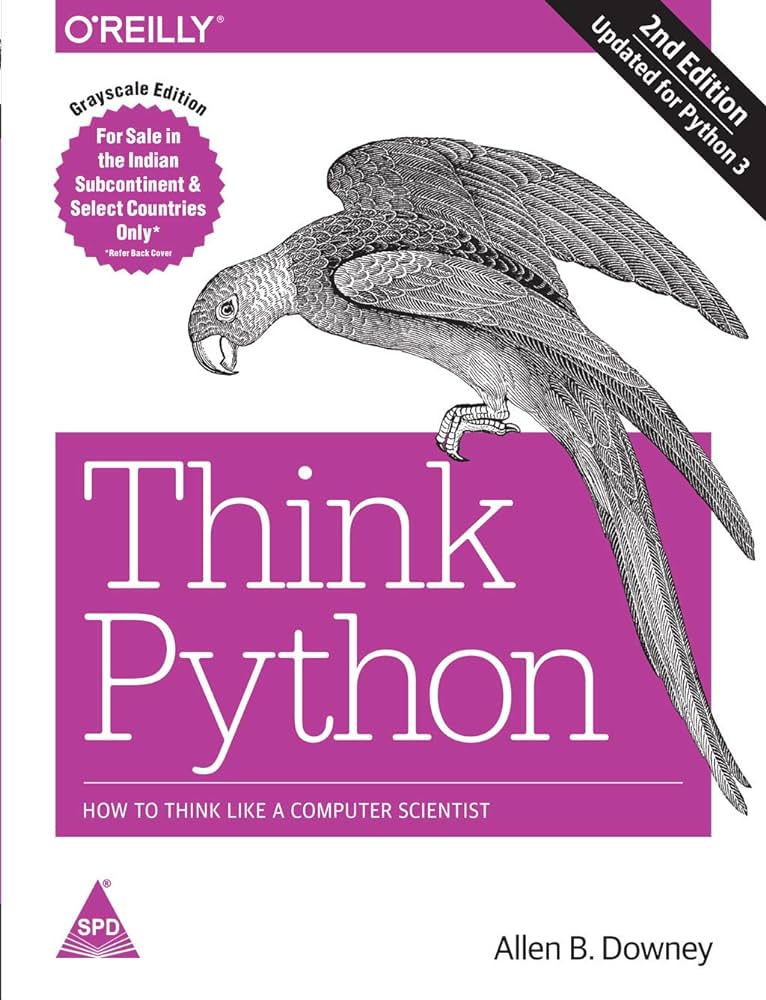
Where to find: Available for free on Green Tea Press
7. “Effective Python: 59 Specific Ways to Write Better Python” by Brett Slatkin
This book serves as a manual for creating neat, effective, and Pythonic code. It offers 59 particular pointers and best practices for raising the readability, efficiency, and maintainability of Python programming. Every suggestion provides real-world guidance and examples.
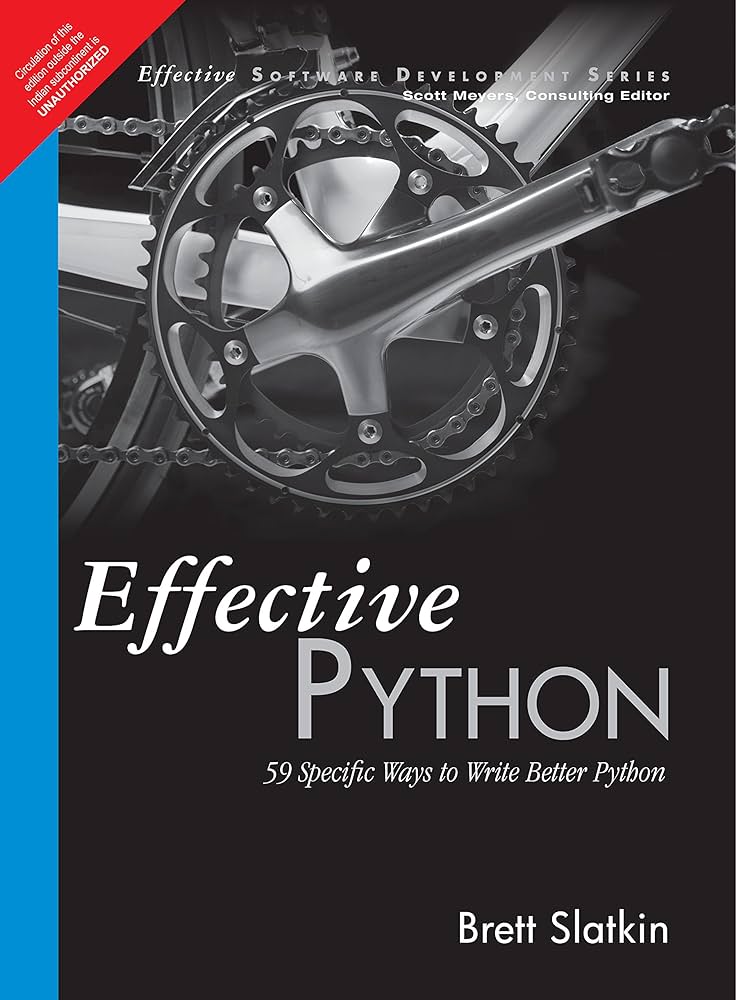
Where to find: Available for free on PythonBooks
8. “Python for Everybody” by Charles Severance
“Python for Everybody” aims at beginners and covers Python programming in relation to web development and data analysis. It covers data structures, frameworks like Flask and Pandas, and fundamental Python syntax. Even people with no prior programming knowledge can benefit from this book.
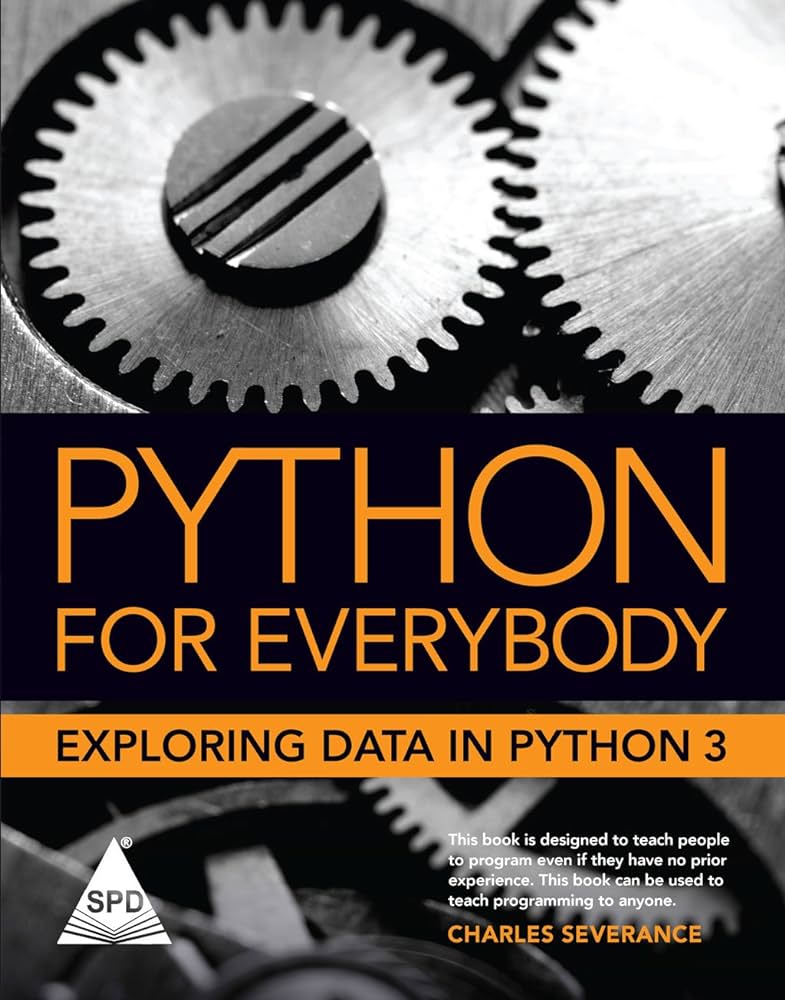
Where to find: Available for free on Python for Everybody
9. “Python Crash Course” by Eric Matthes
An interactive, fast-paced introduction to Python programming is provided via “Python Crash Course”. Basic to intermediate subjects covered include classes, functions, loops, variables, and projects like making a basic game and an online application.

Where to find: Available for free on No Starch Press
10. “Python Data Science Handbook” by Jake VanderPlas
This book offers a thorough introduction to Python data science. It includes fundamental methods and tools for machine learning, data visualization, and manipulation. This book is appropriate for novice and expert data scientists alike.
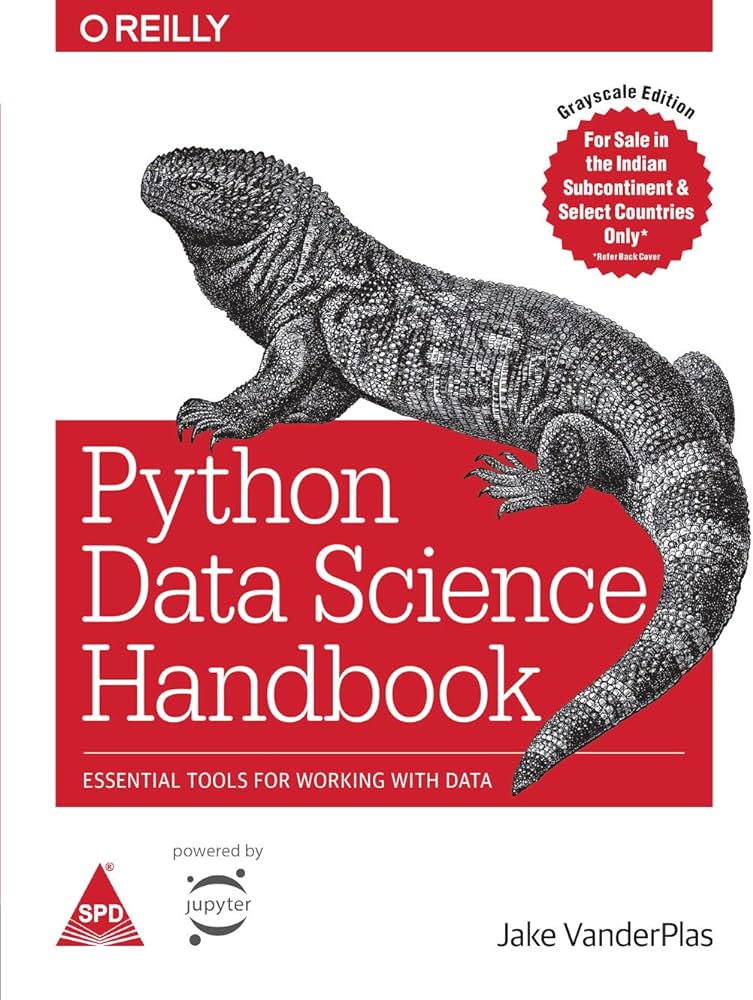
Where to find: Available for free on Jake VanderPlas’s GitHub
11. “Fluent Python: Clear, Concise, and Effective Programming” by Luciano Ramalho
For Python developers looking to produce better code, “Fluent Python” is a book they should read. It goes over things like functions, object-oriented programming, concurrency, and Python’s data model. The goal of the book is to increase readers’ proficiency and expressiveness with Python programming.

Where to find: Available for free on O’Reilly
12. “Natural Language Processing in Python” by Jacob Perkins
The use of Python for natural language processing (NLP) tasks is the main topic of this book. It covers methods with well-known NLP libraries like NLTK and spaCy, including named entity identification, sentiment analysis, and text categorization.

Where to find: Available for free on Packt
13. “The Hitchhiker’s Guide to Python” by Kenneth Reitz and Tanya Schlusser
This book offers newcomers a thorough introduction to Python programming. It addresses things like setting up virtual environments, developing Python code, installing Python, and participating in open-source projects.
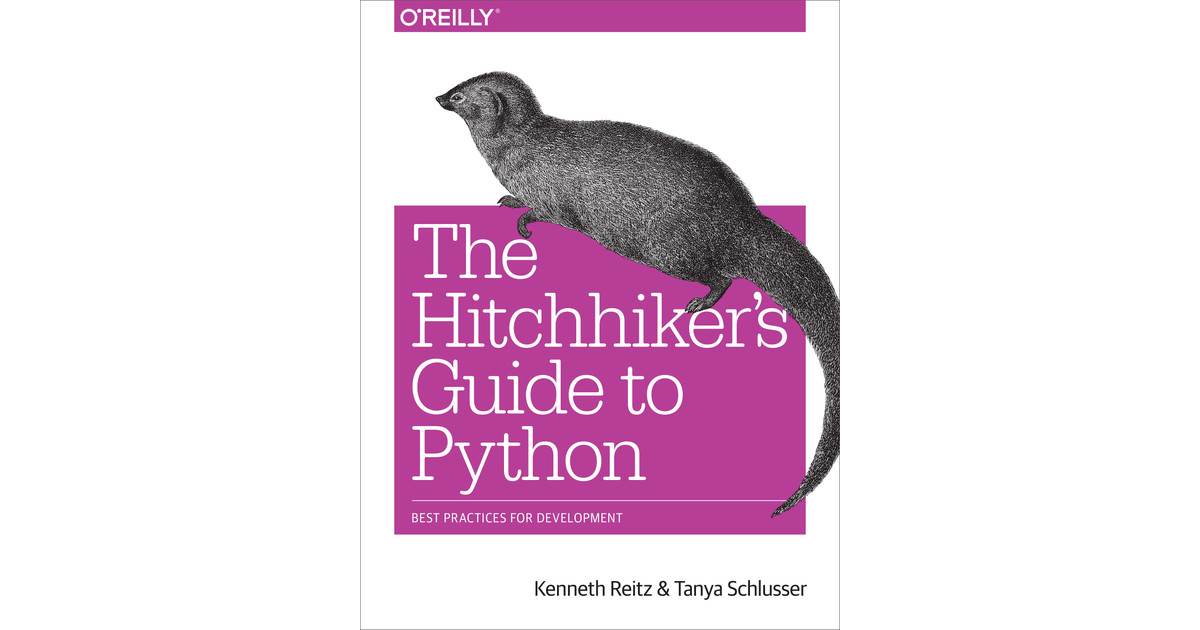
Where to find: Available for free on Python Books
14. “Python Practice Book” by Anand Chitipothu
The “Python Practice Book” offers an introductory set of Python programming exercises. It addresses several different subjects, including dictionaries, functions, and loops. There is a self-evaluation answer provided for every exercise.
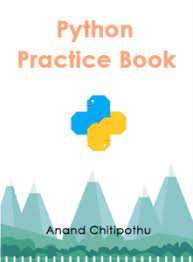
Where to find: Available for free on Python Practice Book
15. “Machine Learning Yearning” by Andrew Ng
Renowned data scientist Andrew Ng is the author of the book “Machine Learning Yearning”. It focuses on the useful applications of machine learning to actual issues. The book covers a variety of subjects, including how to organize machine learning teams, prioritize errors, and set up machine learning initiatives.
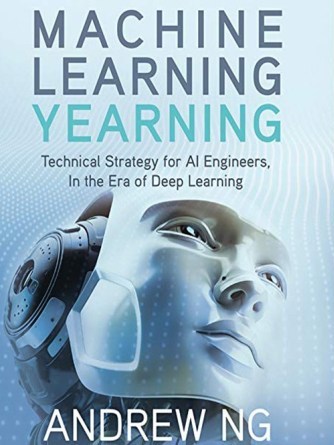
Where to find: Available for free on Andrew Ng’s website
End Note
This collection of free Python eBooks will help you learn the language and discover its applications across various industries. These eBooks provide useful knowledge and perceptive analysis in a range of subjects, such as machine learning, data science, and web development. Thus, grab a copy, investigate Python, and unleash your creative potential in the realm of computer programming! You can sign up for our free Python course to try out interactive Python learning.
You can also read our article on best python books here.
- SEO Powered Content & PR Distribution. Get Amplified Today.
- PlatoData.Network Vertical Generative Ai. Empower Yourself. Access Here.
- PlatoAiStream. Web3 Intelligence. Knowledge Amplified. Access Here.
- PlatoESG. Carbon, CleanTech, Energy, Environment, Solar, Waste Management. Access Here.
- PlatoHealth. Biotech and Clinical Trials Intelligence. Access Here.
- Source: https://www.analyticsvidhya.com/blog/2024/03/best-free-python-e-books/



